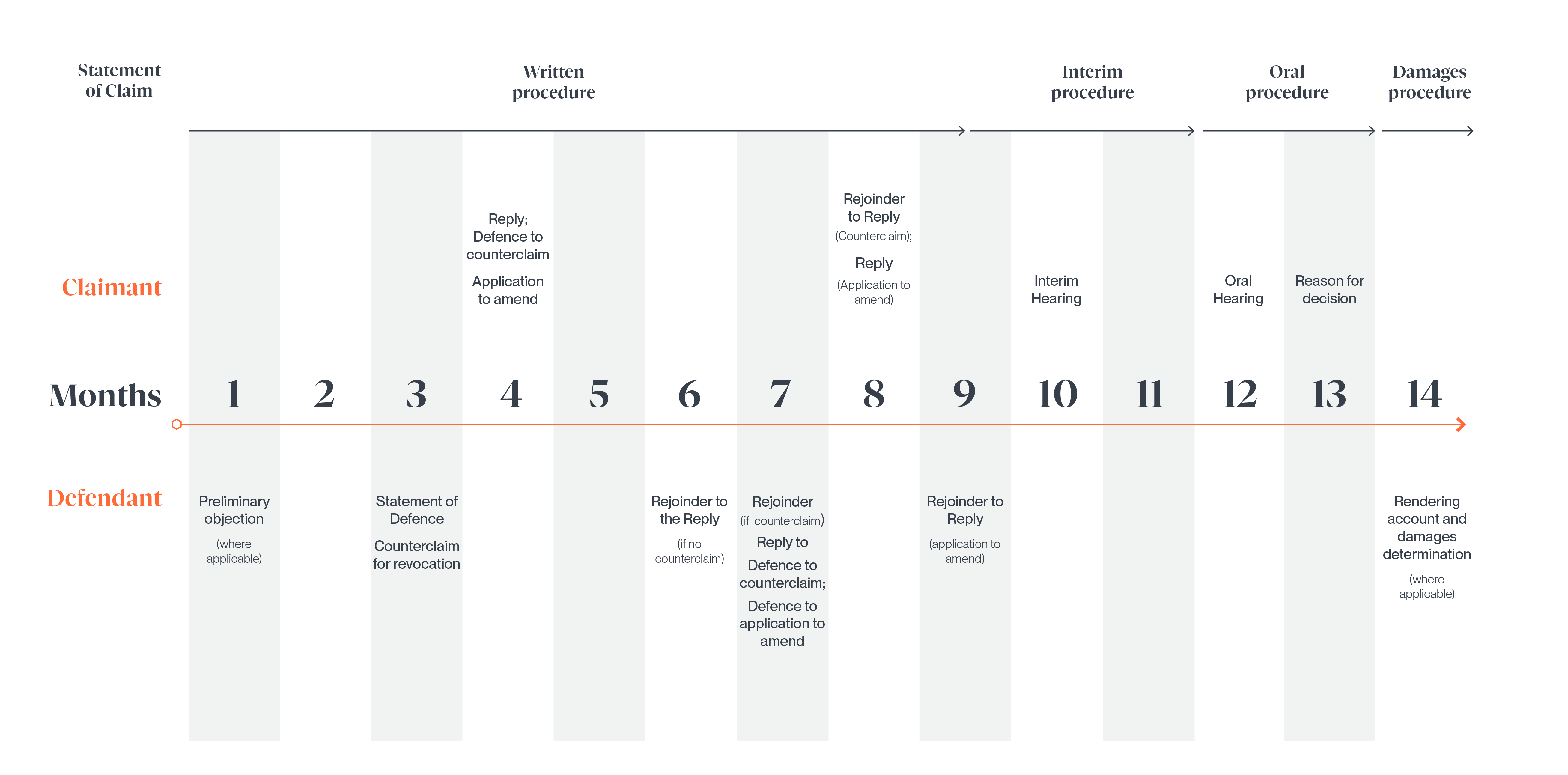The European Patent with unitary effect, or Unitary Patent (UP), is a single right that covers all of the participating Member States of the European Union. The new Unified Patent Court (UPC) handles enforcement of a Unitary Patent throughout the participating Member States.
WHICH COUNTRIES DOES THE UNITARY PATENT COVER?
A Unitary Patent may be designated from any EPO application as it proceeds to grant. The participating Member States that are covered by a Unitary Patent are:
Notably, Spain, Poland and Croatia are not participating in the UPC despite having the opportunity to do so being Member States of the EU. These states may join the agreement later, but for now European patents will need to be validated directly in these states if they are of interest. Of course, the UK is also not participating in the unitary system, having now left the European Union.
HOW DOES THE UNITARY PATENT WORK?
A UP is a single right that covers all participating Member States, and for which only a single annual renewal fee is payable.
In addition, a single court decision, e.g. on infringement and/or validity, applies across all participating Member States rather than just in one country.
Patentees are therefore be able to bring a single infringement action for pan-European infringements, while third parties are able to seek centralised revocation of the Unitary Patent.
Unitary Patents are also subject to revocation via the EPO opposition procedure.
DOES THE UNITARY PATENT REPLACE THE EXISTING SYSTEM?
The introduction of the UP and UPC does not immediately supersede the existing framework for European patents, which will continue to be available from the EPO. Instead, the UP is an alternative patent issued by the EPO for EPC Member States which are part of the EU and have signed and ratified the UPC Agreement.
Patent coverage across all EPC Contracting States can therefore be achieved by a European patent validated in national states (as is currently the case) or by the combination of a UP with a European patent validated in non-UP Member States.
When a European patent application proceeds to grant, applicants therefore have the following options:
|
For participating Member States
|
For non-participating Member States and non-EU states:
|
|
|
|
It is anticipated that the unitary system will ultimately supersede the present system, but it seems unlikely that this will happen anytime soon. There will at the very least be a seven years transitional period, which may be extended to fourteen years. Further, with several states not part of the unitary system, but included within the current system, there are some major changes and decisions that would be required for this to eventually happen.
HOW CAN A UNITARY PATENT BE OBTAINED?
The EPO is responsible for the procedure to obtain a Unitary Patent. There are two basic requirements that must be fulfilled before a UP designation can be obtained.
Firstly, in order to be eligible for a UP, a European patent must have the same claims in all participating Member States. It is therefore not possible to obtain a UP from a European patent that has different claims in one of the participating Member States, for instance in view of national prior rights that may exist.
Secondly, the European patent must grant with the designation of each of the 24 participating Member States still being valid (i.e. the designation should not have been withdrawn during prosecution).
Providing both requirements are met, the UP designation must be filed at the EPO within one month of the mention of grant of the European patent being published in the European Patent Bulletin.
For a transitional period, there is also a requirement to file a translation of the full specification into English (if the official language is French or German), or alternatively into any other official language of the EU where the official language of the proceedings is English.
Once the UP has been designated, it is then not possible to validate the patent in any of the participating Member States as a national designation.
Providing these requirements are met, it will be possible to obtain a UP from any European patent that proceeds to grant. It is however not possible to retroactively convert granted European patents having validated in the participating Member States to a Unitary Patent.
WHAT ARE THE COSTS ASSOCIATED WITH A UNITARY PATENT?
The costs for a Unitary Patent are significantly lower than the total costs of the national patents that it replaces.
The validation formalities initially only require the full specification to be translated into one other language (this formality is only for a transitional period), and there will no longer be a need to provide a local address for service in the participating Member States.
The ongoing costs for renewals are expected to represent the equivalent of the national renewal fees for the four most common validation states. The Unitary Patent is therefore be a more cost effective option unless only a few states are of interest.
The ongoing administration of a Unitary Patent also presents advantages, as the single right has a central register corresponding to all 24 Member States. Transfers and other recordals will therefore be easier to administer. This does however present some limitations, such as the inability to strategically drop part of the portfolio covering Member States at a later stage to reduce the cost of annuities.
CAN AN SPC BE OBTAINED FROM A UNITARY PATENT?
In principle there is no reason why a Unitary Patent cannot be used as the basic patent in support of an SPC. The SPC Regulations (Regulation EC No 469/2009 for medicinal products and Regulation EC No 1610/96 for plant protection products) do not limit the origin or type of patent that can be used as the basic patent for an SPC, and only require that it must protect the product in the territory for which the SPC is being sought. The fact that the basic patent may simultaneously protect the product in several territories should not affect the ability for the patent to support SPC applications in those territories individually.
The European Commission’s website also states that it is investigating the wording of the legislation to ensure that it will not be a problem to use a European patent with unitary effect as the basis for an SPC.
The future possibility of the creation of a ‘unitary SPC’ would require the selection or creation of an institution that would examine and grant this new right. Unlike for the creation of the European Patent with unitary effect, for which the necessary infrastructure was largely in place through the EPO, an appropriate solution for ‘unitary SPCs’ is less obvious. Nevertheless, the Commission has announced an intention to propose new legislation for having a single procedure for granting SPCs (potentially via the creation of a new 'unitary SPC'), although it has not yet provided details of its proposals or opened a call for evidence (see our article here).
HOW DOES THE UNITARY PATENT IMPACT ON YOUR PATENT FILING STRATEGY?
The Unitary Patent clearly represents a cost effective route for obtaining patent protection across all 24 participating Member States. It can therefore be expected that patent holders typically only validating in a few states may choose to use the UP to obtain much more far reaching patent protection for the same cost.
This may in turn impact the freedom to operate of businesses having operations in the EU that have developed a strategy to avoid their competitors' typical validation strategies.
It cannot necessarily be assumed that there will be general use of the Unitary Patent, despite the clear cost savings that it represents. The uncertainty of how the Unified Patent Court will operate may lead businesses with extremely valuable patent assets to opt for traditional national validation strategies while the ability to opt-out of the UPC is still available, even if this route is more expensive. Moreover, there may be an increased use of national filings in key jurisdictions to avoid patent rights ever falling under the jurisdiction of the UPC once the transitional opt-out period has expired.
The Unitary Patent is also a single right, meaning that it must have the same owner(s) for all participating Member States. This may impact how multinational companies handle their patent portfolios post grant, requiring the rights associated with each of the participating Member States to be handled via license agreements instead of assigning the rights to different entities.
Overall, the decision on whether to opt to obtain a Unitary Patent will depend on a number of business and commercial factors, way beyond simple cost considerations.

























